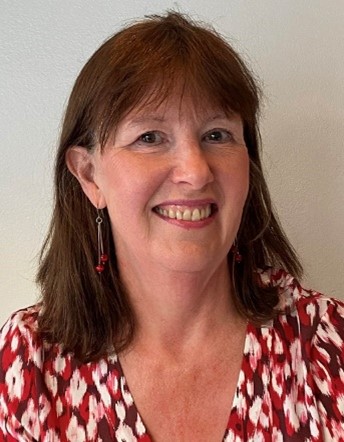Home News & Views Resilience-based Clinical Supervision for Social Care: What really happens in the sessions?
Resilience-based Clinical Supervision for Social Care: What really happens in the sessions?
 Sue Hill: FoNS Facilitator and RBCS for Social Care Programme Lead
Sue Hill: FoNS Facilitator and RBCS for Social Care Programme Lead
Ever wondered what actually happens in an RBCS Social Care session? Well! Let me take you through what we do (and the process is the same whether it’s for a group of social care nurses or any other groups of staff!).
The whole premise of RBCS is to create a space that is safe for the participants to be able to express their thoughts and talk about issues they’re experiencing.
The session I am going to tell you about was the second session, so we had already developed the safe space agreement. This is created by the group and describes how all should behave. Respect, being non-judgmental and listening are often key components and our group also included allowing everyone the opportunity to talk without forcing anyone to speak, as some group members do not have English as their first language so take longer to process the information being discussed. As I said, this group had only met once before but had been able to create a space where everyone was able to open up their emotions and vulnerabilities and discuss how an event had really affected them.
The second stage is grounding and our group practised a couple of different groundings to feel very present in the session.
After the check in (the third stage), we began the reflective discussion and one nurse took the opportunity to tell her story. She was given the space to talk for as long as she needed with no interruptions. This was followed by curious questions from the group.
It was a frank and detailed professional account of a resident who was admitted to hospital from the care home and died in hospital. The rawness of the decision made and the consequences for all concerned came through. The care home staff were devasted by the death of the gentleman, who had been there for many years. The dilemma the nurse faced with the decision to admit him to hospital, which was made by this man and his wife, clearly was extremely difficult and the outcome was not expected. Being able to speak without interruption helped the nurse to understand her feelings and the emotions she was experiencing. The curious questions of the other group members further helped her reflect on this experience, as did the recognition that her threat system was coming into play as she was questioning her own professional judgement. At the end of the session, she commented that it had really helped her to process her feelings and emotions in a more positive way.
But it was also beneficial to the whole group, who were able to identify with the situation described. They talked about the length of time they looked after residents for and how close they often became to the residents. They also talked about how it feels when they are not able to go to the funerals of people they have cared for and how difficult the lack of closure can be.
We finished our session with an ending and this week it was about doing something compassionate for ourselves. The group had ideas of having a long bath, going for a walk and reading a book …. just some time to themselves that they would appreciate.
The whole session finished with the group feeling positive and listened to and having been able to share their experiences and feelings.
Comments are closed.

